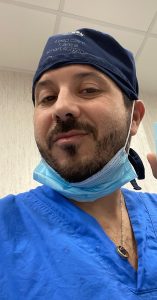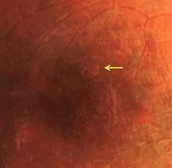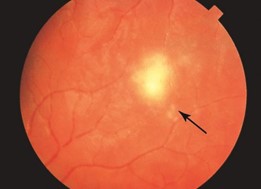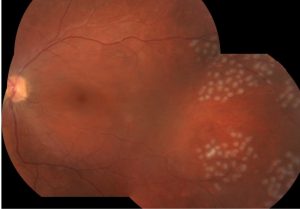We open our interview series with a very interesting clinical case, brought to us by Dr Silvio Zagari, which we think will capture the interest of both ophthalmologist colleagues and the web audience.
Our column 'I'll tell you a story...' is inaugurated with an interview with Dr Silvio Zagari, an ophthalmologist who has made the saying "The more I enjoy doing something, the less I call it work".
Dr Silvio Zagari, how did you choose your training path in Ophthalmology and what is your current professional profile?

"I am a vitreo-retinal surgeon in private practice. I currently run an eye clinic in Acicastello (CT), with an eye department in private practice and in agreement. I am also a consultant for vitreo-retinal surgery in other clinics in Sicily, where I regularly operate. My training was long and difficult, but my choice of ophthalmology was the most natural one in my life.
My father was an ophthalmologist and head physician at a well-known hospital in Catania and, moreover, he had already built and founded the clinic that I run, so the choice was very natural for me. Unfortunately he died young, when I was only 22, so my training was difficult, and if I made it to the top it was also thanks to other great professionals who helped me in my training.
I started doing cataract surgery with Dr Fichera, my father's first assistant at the Cannizzaro hospital, who later - when he became the new head physician - took me in as if I were at home.
I learned the basics of vitreo-retinal surgery from my master to whom I owe everything, Prof. Alfredo Reibaldi, who 'adopted' me, both professionally and humanely, throughout my training and beyond. His teaching has passed on to me more than 40 years of experience in vitreo-retinal surgery and also many values that I think about every day during my work.
I also learnt a lot from my foreign fellowship in Chennai in India, which lasted a few years, from Prof. Amar Agarwal where I certainly made a big step forward in complex surgery. Subsequently, I also learnt a lot from my experiences on numerous humanitarian missions in Africa and Nicaragua with non-profit organisations, of which I am still a member today and to which I continue to contribute.
In the end, I built myself up slowly with many difficulties, but I never forget my origins and the people who helped to take me forward in my career and life.
Can you tell us about an unusual or particularly complex clinical case that you managed to handle and solve?
 I am telling you about a very rare case that I recently treated: a young patient presenting with a picture of unilateral subacute neuroretinitis, with slight oedema of the optic papilla, a picture of mild vitritis and small focal retinal lesions and a slight decrease in visual acuity.
I am telling you about a very rare case that I recently treated: a young patient presenting with a picture of unilateral subacute neuroretinitis, with slight oedema of the optic papilla, a picture of mild vitritis and small focal retinal lesions and a slight decrease in visual acuity.
By performing fluorangiographic examination, OCT and fundus examination, the presence of tiny nematodes in the s sub-retinal space, at the inflamed areas.
sub-retinal space, at the inflamed areas.
The patient tells a story of a long stay in Peru and, following a high fever, ocular symptoms appeared after several weeks.
The small worms were quickly able to migrate to other retinal areas, so the fear was that they would soon involve the macula.
The diagnosis was an infestation of Toxocara Canis, in agreement and with the cooperation of infectivologists.
We instituted medical therapy with Albendazole and, ocularly, I relied on some publications where they photocoagulated the worms with the Argon laser. See for example Worms in the Eye: DUSN (reviewofophthalmology.com)
So I performed several sessions of focal Argon and general medical therapy to eradicate the eggs.

The patient had a marked improvement immediately and the picture recovered with a visual acuity of 10/10.
Dr Zagari, a few tips for young colleagues starting out in Ophthalmology.
Our specialisation is a marvel. A cocktail of complex surgery, technology, clinical and medical. I can only advise young people never to stop, never to settle for a quick, easy and secure economic position... and never to stop learning, to be dedicated and ready to sacrifice, to put yourself out there and to experience your work as something beautiful and natural, never as an obligation. There is a saying that goes: "The more I enjoy doing something, the less I call it work.". And this is the philosophy for doing well what we have chosen to do.
Under the heading "I tell you a story..."
- 'Give a woman the appropriate opportunities and...' - Italian Ophthalmologist
Interview with Dr Manuela D'Aquino - Open up to the world!!! - Italian Ophthalmologist
Interview with Dr Miguel Rechichi - The 'allologist' is a thing of the past - Oculista Italiano
Interview with Dr Francesco Cerbella - Every clinical case: an opportunity for growth - Oculista Italiano
Interview with Dr Marco Zagari - Broadening our views - Oculista Italiano
Interview with Dr Pasquale Napolitano - Basic skills in each subspeciality - Oculista Italiano
Interview with Dr Beatrice Tombolini - Let your heart lead you too - Oculista Italiano
Interview with Dr Danilo Mazzacane - The privilege of caring for people - Oculista Italiano
Interview with Dr Giovanni Scandura - "Travelling a lot to learn... - Oculista Italiano
Interview with Dr Federica Fossataro - The best refractive solution for each individual patient - Oculista Italiano
Interview Dr. Antonio Randazzo
Editorial info
Our column is open to all ophthalmologists who are interested in telling their colleagues and our web audience about a clinical case.
We invite anyone wishing to participate in our publishing project to contact
Editorial Board 'l'Oculista italiano' - Ada Puglisi
Tel. +39 095 79.22.145
E-mail: info@oculistaitaliano.it
Or write to us using one of our contact forms
Information Request - Italian Ophthalmologist
Collaborate with us - Oculista Italiano
For further information
- The vitreous body and related pathologies - Oculista Italiano
- Treatment of ocular inflammation after vitreoretinal surgery (oculistaitaliano.it)
- https://www.reviewofophthalmology.com/article/worms-in-the-eye-dusn
- https://eyewiki.aao.org/Diffuse_Unilateral_Subacute_Neuroretinitis_(DUSN)
- https://www.ncbi.nlm.nih.gov/pmc/articles/PMC2892138/
- https://pubmed.ncbi.nlm.nih.gov/5423800/
- https://retinatoday.com/articles/2019-oct/as-the-worm-turns
- https://www.aao.org/education/image/worm-in-eye-diffuse-unilateral-subacute-neuroretin
